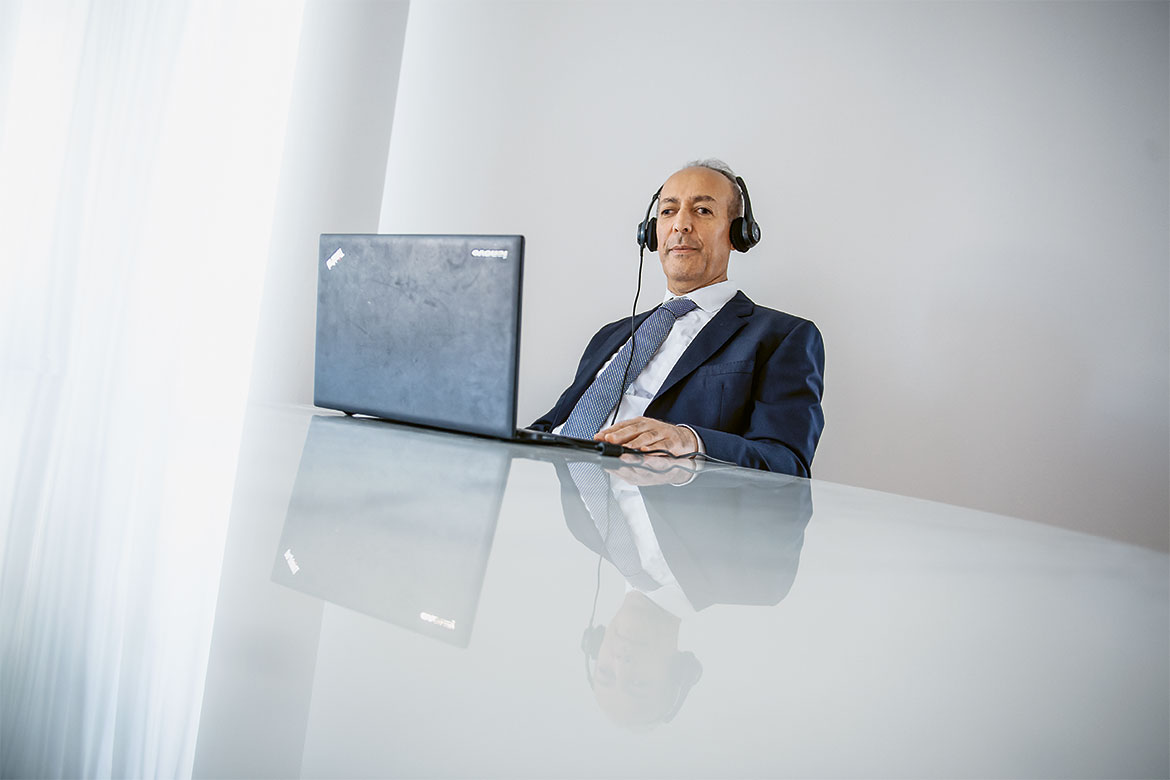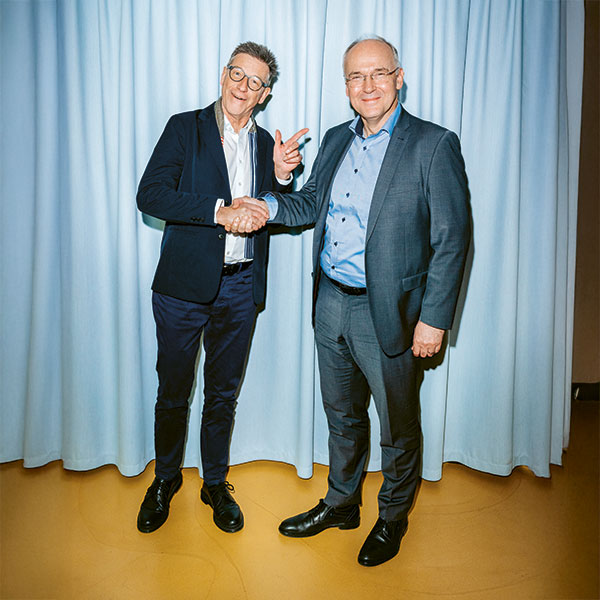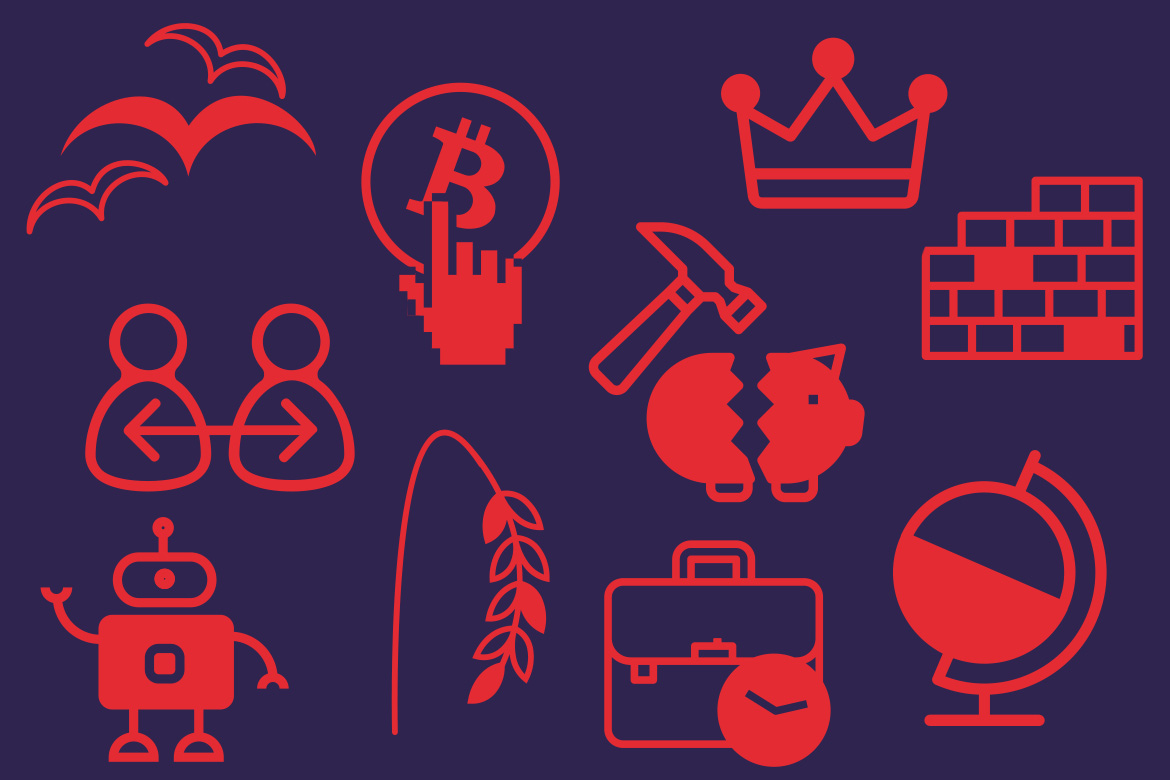“The biggest disability is in people’s minds”
Alireza Darvishy from the ZHAW School of Engineering has been visually impaired since an accident in his youth. His fellow students used to read his textbooks onto cassettes for him. Today, he is engaged in research and advises companies and authorities about barrier-free access for the disabled.

Education and technology are prerequisites for a society in which everyone is welcome, says Alireza Darvishy. | Image: Valérie Chételat
Alireza Darvishy, how do students react to your visual impairment?
I tell them about it in my first lecture. After all, if they ask a question, they have to make me aware of it audibly. Look at it like this: they have a professor in front of them in the lecture hall who can barely see them, but who sometimes laughs too. They can cope with it.
Who has supported you in your career?
After the accident, my parents encouraged me not to give up my ambitions. I was at grammar school back then. My mother helped me to study every night. After I passed my school-leaving exam in my home country of Iran, I travelled on my own to Switzerland at the age of 18. First I learned German, then I passed the Swiss school-leaving certificate and was allowed to study in Zurich.
Did you get any institutional help in Switzerland?
No, as a foreigner back then I had no entitlement to insurance benefits. But I got to know a lot of students who spontaneously offered to read my textbooks onto cassettes for me. I always had a tape recorder with me, and almost all my lecturers were willing to let me record their classes.
How do you experience Switzerland today with regard to barrier-free access for the disabled – in other words, the idea that all people should have access to all public services?
Thanks to international networks and a new legal framework, Switzerland has become more open. In 2014 Switzerland ratified the UN Convention on the Rights of Persons with Disabilities. But things still aren’t as they could be.
Where are the biggest deficits?
The biggest disability is in people’s minds. You can’t solve everything with laws and technology. In Central Europe, people tend to want perfectionism. Yet our nature is anything but perfect. People with disabilities want to participate in life and uphold their dignity.
What do you propose?
In the project ‘Teaching and researching at university – barrier-free!’, we are developing guidelines with suggestions as to what universities can do to ensure equal opportunity for disabled researchers and teachers. My team is setting up a digital platform for this. Our app will include information, blogs by those affected, and a so-called matching platform. This will suggest a suitable accompanying person who could offer their assistance for a day. The project wants to get rid of further barriers to academics with disabilities.
What do such barriers mean to you in everyday life?
Some of my difficulties are little, everyday things. Such as turning on the overhead projector in the lecture hall. A technological solution has to be developed for this. Why shouldn’t it be voice-activated? I can’t keep asking my research assistants to help me out. Endeavouring to achieve independence and normality is energy-consuming and often gnaws away at your self-respect. But despite these barriers, I want to encourage everyone to take up an academic career if it’s what they want. Ultimately, education overcomes barriers, makes victimhood disappear, and eradicates discrimination. Education and technology are the prerequisites for making people welcome and ensuring that no one is excluded.
Franca Siegfried is a specialist journalist for the Swiss Academy of Humanities and Social Sciences.




